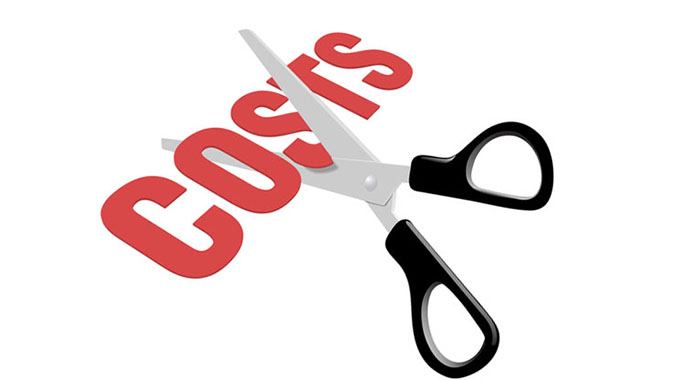Source: ‘Zim to cut expenditure in 2020’ . . . However economic activity will improve beyond next year, says UK think-tank | The Herald 18 OCT, 2019
Business Reporter
ZIMBABWE is likely to cut public expenditure next year on the back of falling revenues and economic contraction, according to a report by United Kingdom-based Economist Intelligence Unit (EIU).
However, the UK headquartered think-tank, a unit of the Economist Group, has projected that economic activity in Zimbabwe would improve beyond next year and this will boost revenue collection and public spending.
“The Government expenditure will decline in 2020 as revenue falls and as avenues for financing to support expansive programmes remain limited,” said EIU.
“In 2021-24, as revenue increases, expenditure will rise steadily, as the Government seeks to repair infrastructure following years of underinvestment, support broader economic growth and maintain the substantial public-sector wage bill.”
Aid inflows into the country will remain sizable, given the mounting humanitarian crisis stemming from the economic crisis, and exacerbated by the ongoing drought.
“Greater access to external credit will arise only if Zimbabwe successfully implements reforms and clears arrears to international institutions,” said EIU. “Currently, we do not expect to see a resumption of IMF financing within the forecast period.”
Fiscal deficit is expected to narrow slightly to 6,3 percent of the gross domestic product (GDP) in 2020 due to improved revenues.
Zimbabwe is currently financing fiscal deficits through domestic borrowing, mainly using Treasury bills as the country remains largely cut off from international financial markets.
Lately, Treasury has struggled to raise targeted amounts through TBs, underlining the huge disconnect between inflation realities being experienced by investors and expectations of policy makers.
Market analysts say investors believe inflation will continue trending upwards, despite the Government seeing monthly inflation dropping to 10 percent by of this year.
The EIU said the Zimbabwean dollar is expected to largely stabilise next year before it starts firming against the US dollar on the back of growing confidence in the domestic currency.
The local currency would fall to an average $16 against the US dollar next year, but will be considerably weaker on the black market. It said the suppression of demand through limited access to the currency would continue to temper depreciation, which “we believe would be much more rapid otherwise”.
According to EIU, the domestic currency would firm to an average of $10 against the greenback in 2021, and to an average of 6,1 the following year, as inflation moderates, exports increase and the country realises more foreign direct investment.
In February, Zimbabwe moved away from the fixed-rate regime after it introduced the interbank market to allow importers and exporters to trade the RTGS dollars and other foreign currencies with the rate initially pegged at 2,5 against the US dollar. Since then, the exchange rate of the RTGS has dropped to 14,9 against the greenback on the interbank.
The local currency is, however, even weaker on the parallel market where it is trading round 20.
While the think-tank projected a deepening economic crisis this and next year, it has projected the “crisis” to abate, largely due to improved domestic energy, agriculture and mining production. This would improve Zimbabwe’s foreign reserves position, supporting the currency and moderating soaring inflation, said the think tank.
“We expect inflation to average 165,5 percent in 2020, after averaging an estimated 205,2 percent in 2019,” said EIU. Rapid inflation has been driven by sustained currency weakness, particularly on the parallel market, foreign-exchange shortages and the ongoing drought, which has severely reduced agricultural and hydropower production. Inflation would, however, fall sharply in 2021, to 8,3 percent, owing to a strengthening of the currency and the high base of comparison.

COMMENTS